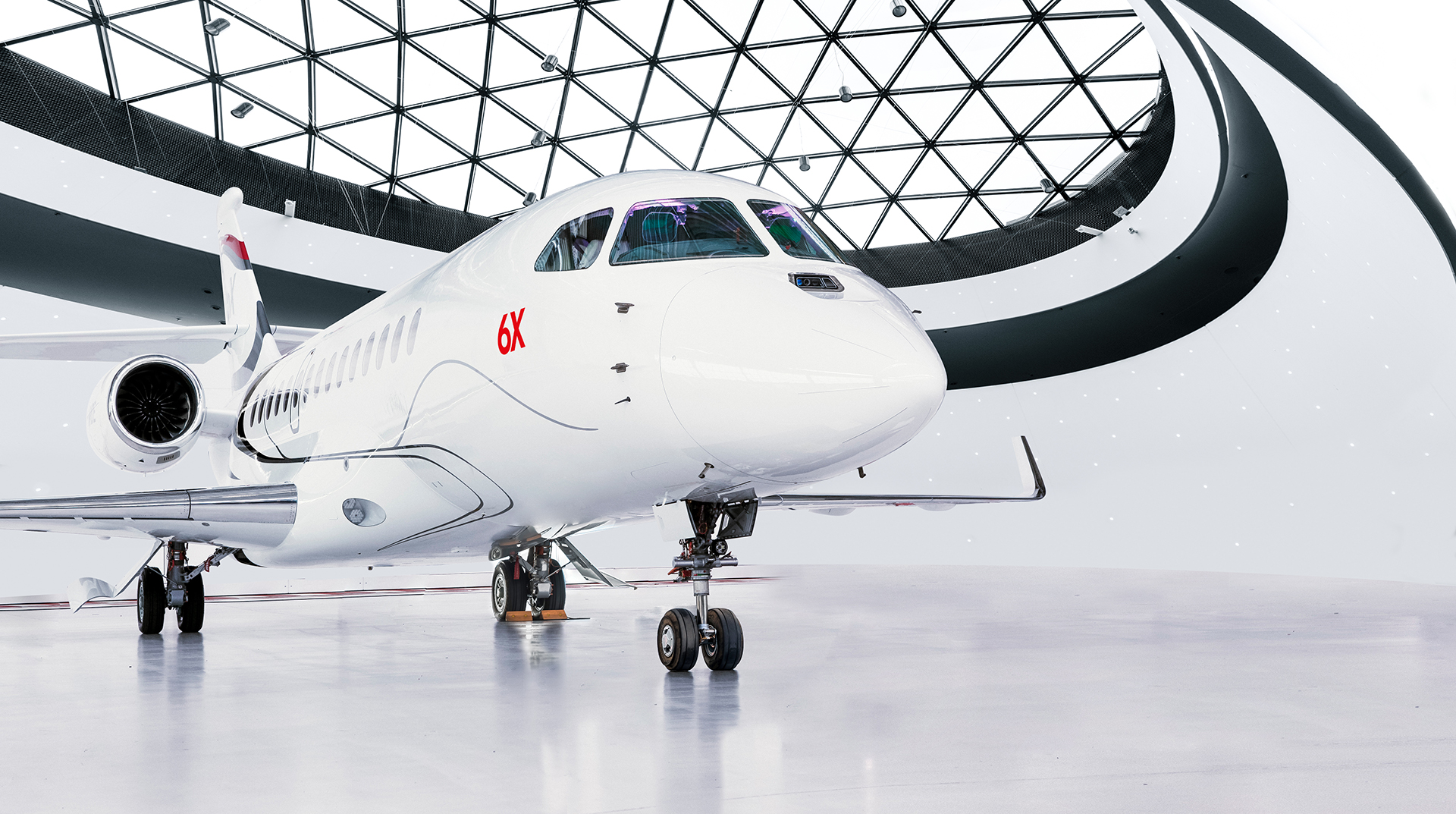
Sustainability
Leading with efficient design
Perhaps what makes Falcons more environmentally responsible business jets is the philosophy of efficiency that is built into every element of design. That means reducing aircraft drag and weight through cutting-edge design, the use of high-aspect-ratio laminar flow wings, and structural weight savings through the use of newly developed materials. All are achieved through Dassault’s proprietary Product Lifecycle Management tool, CATIA.
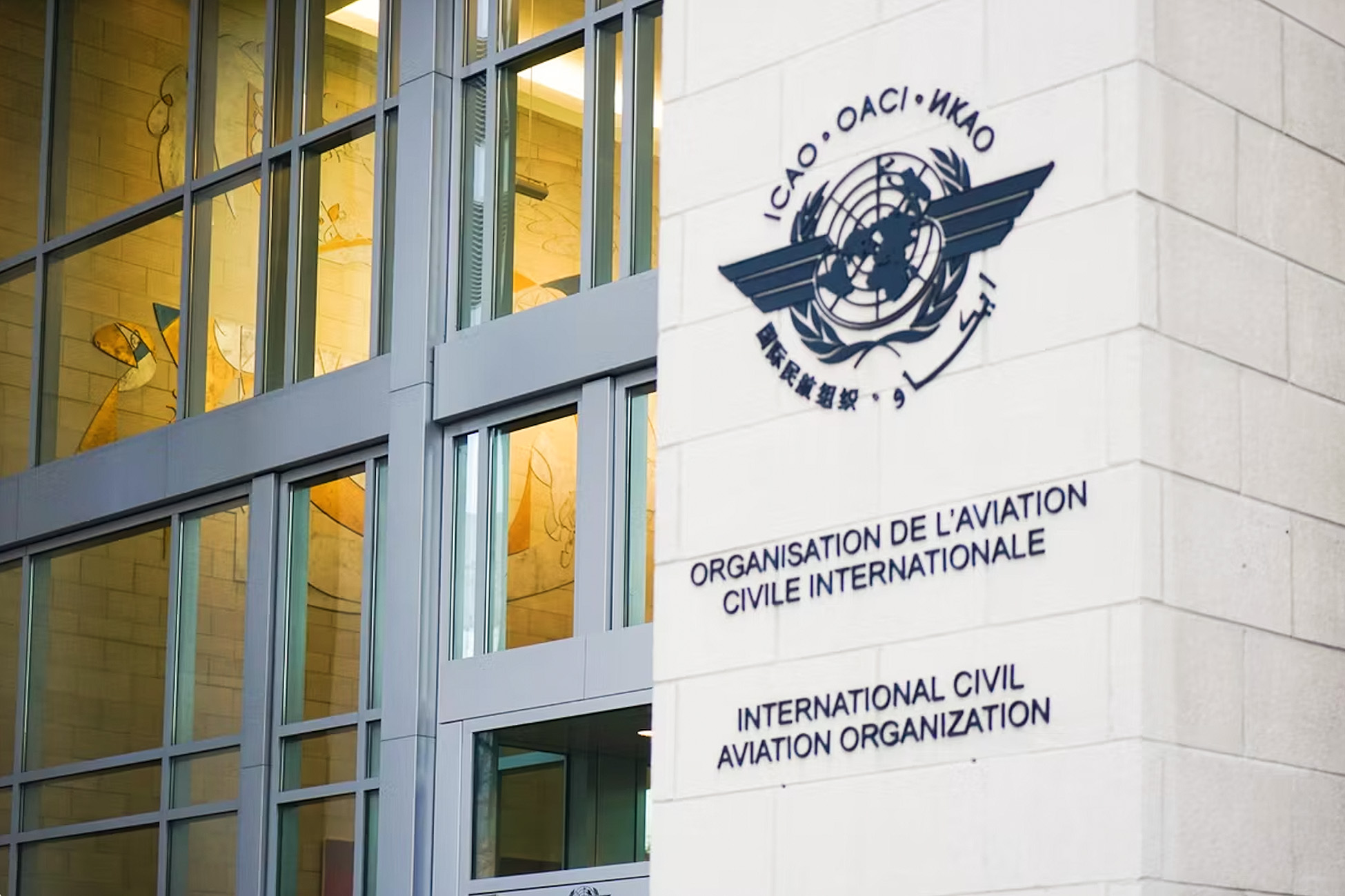
Leading with a focus on the environment
We are fully committed to the preservation of our planet. Dassault is an active member of the International Civil Aviation Organization (ICAO) Committee on Environmental Protection, and we have reaffirmed our commitment towards carbon neutrality by 2050 in a statement issued at the European Aviation Summit in Toulouse in February 2022. Falcons also exceed all environmental noise pollution standards.
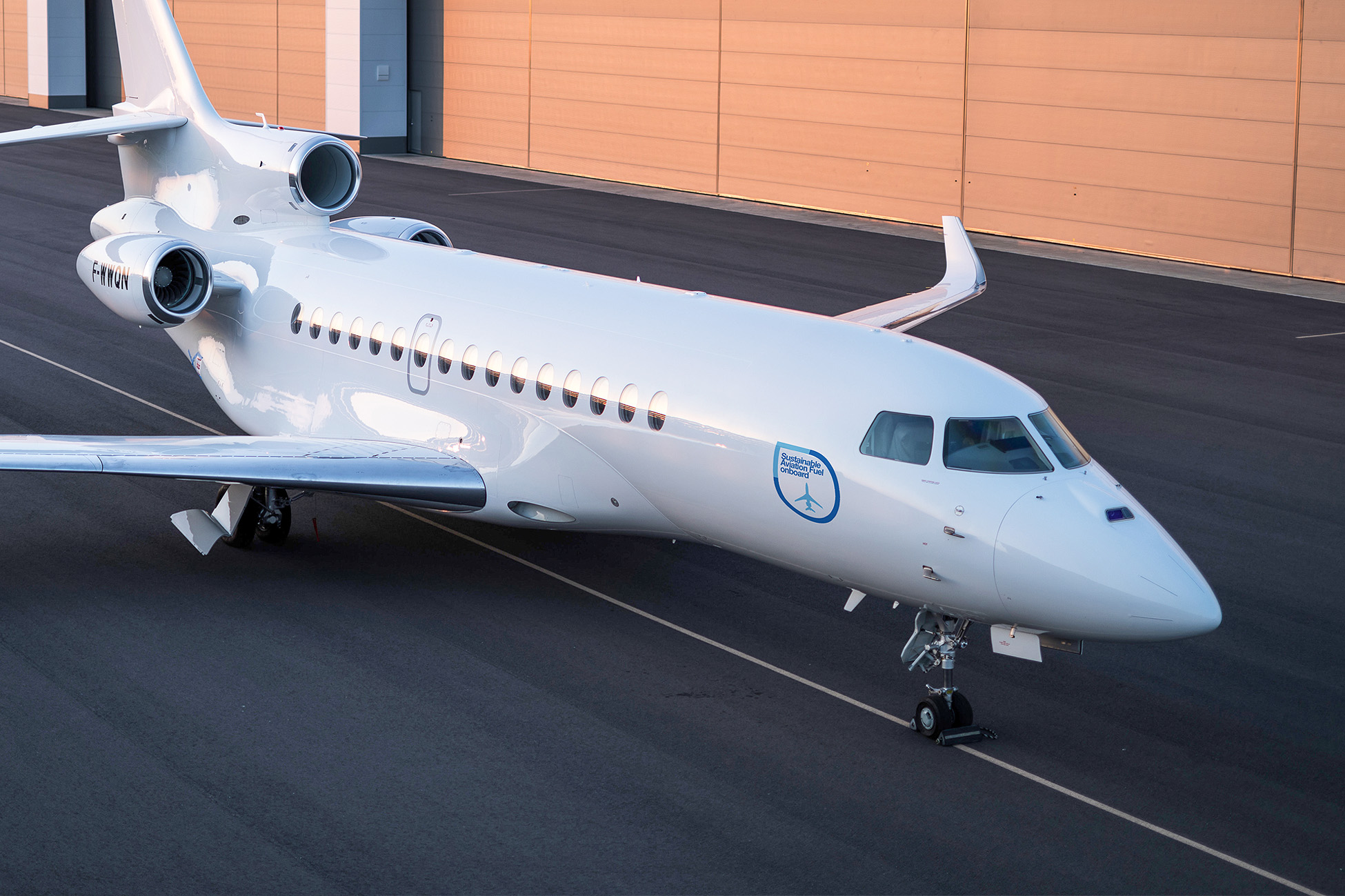
Leading with sustainable aviation fuels
Sustainable Aviation Fuels (SAF) are the first step in reducing aviation’s CO2 footprint. Falcons are currently certified to use up to 50% SAF, and Dassault is working closely with engine manufacturers to move towards the goal of 100% SAF. We are also a close partner with the Business Aviation Coalition for Sustainable Aviation Fuels, and together we continue innovating toward a cleaner future.
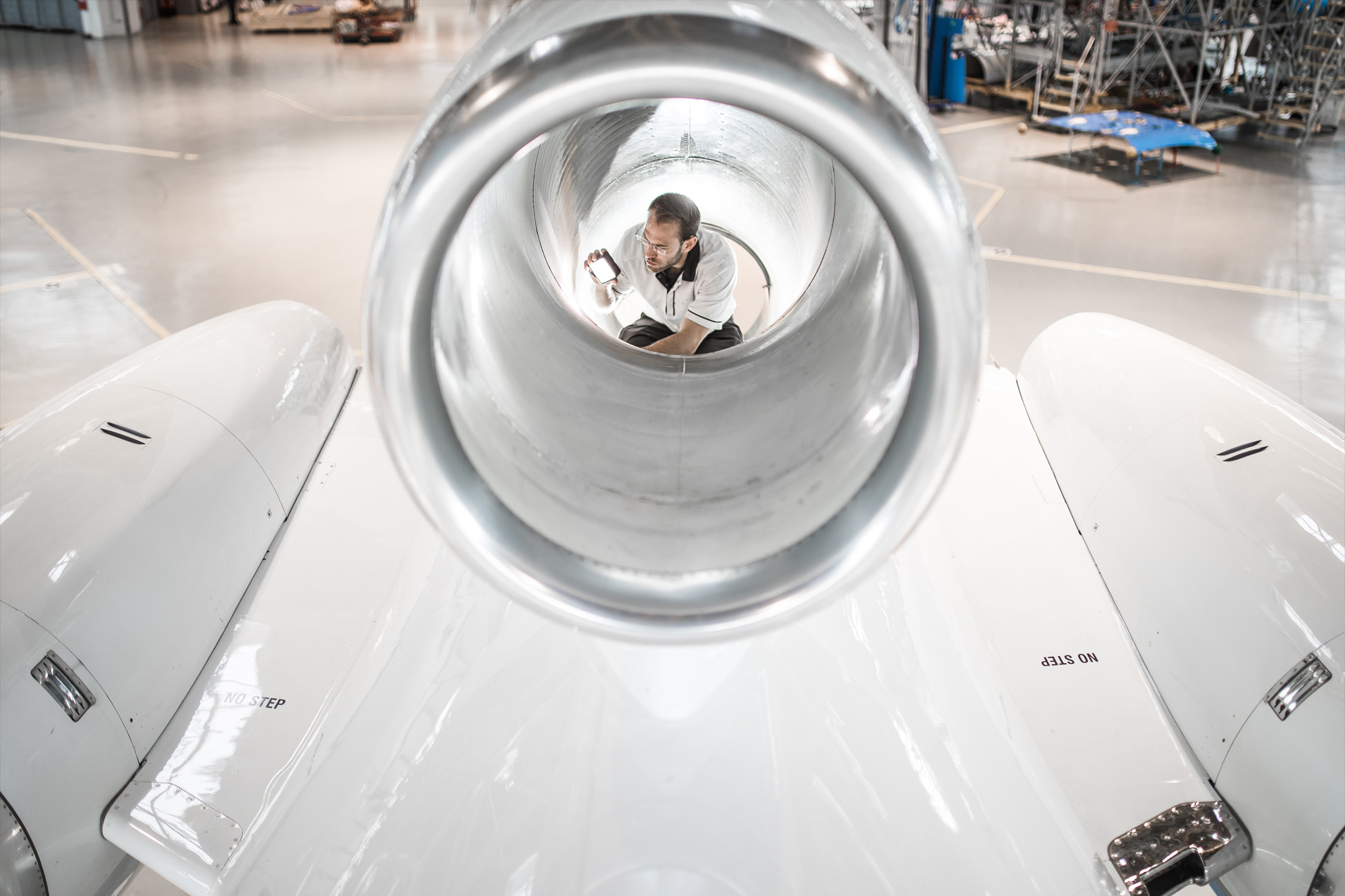
Leading with clean manufacturing
For over 15 years, eco-manufacturing initiatives have been part of Dassault’s Corporate Social Responsibility policy, measurably reducing our energy consumption and industrial emissions. According to the Financial Times’ Europe’s Climate Leaders listing, we’re one of 300 European companies that have achieved the greatest reductions. Moreover, by applying the EU REACH standards, we have removed, replaced, or substituted hazardous products since 2013.
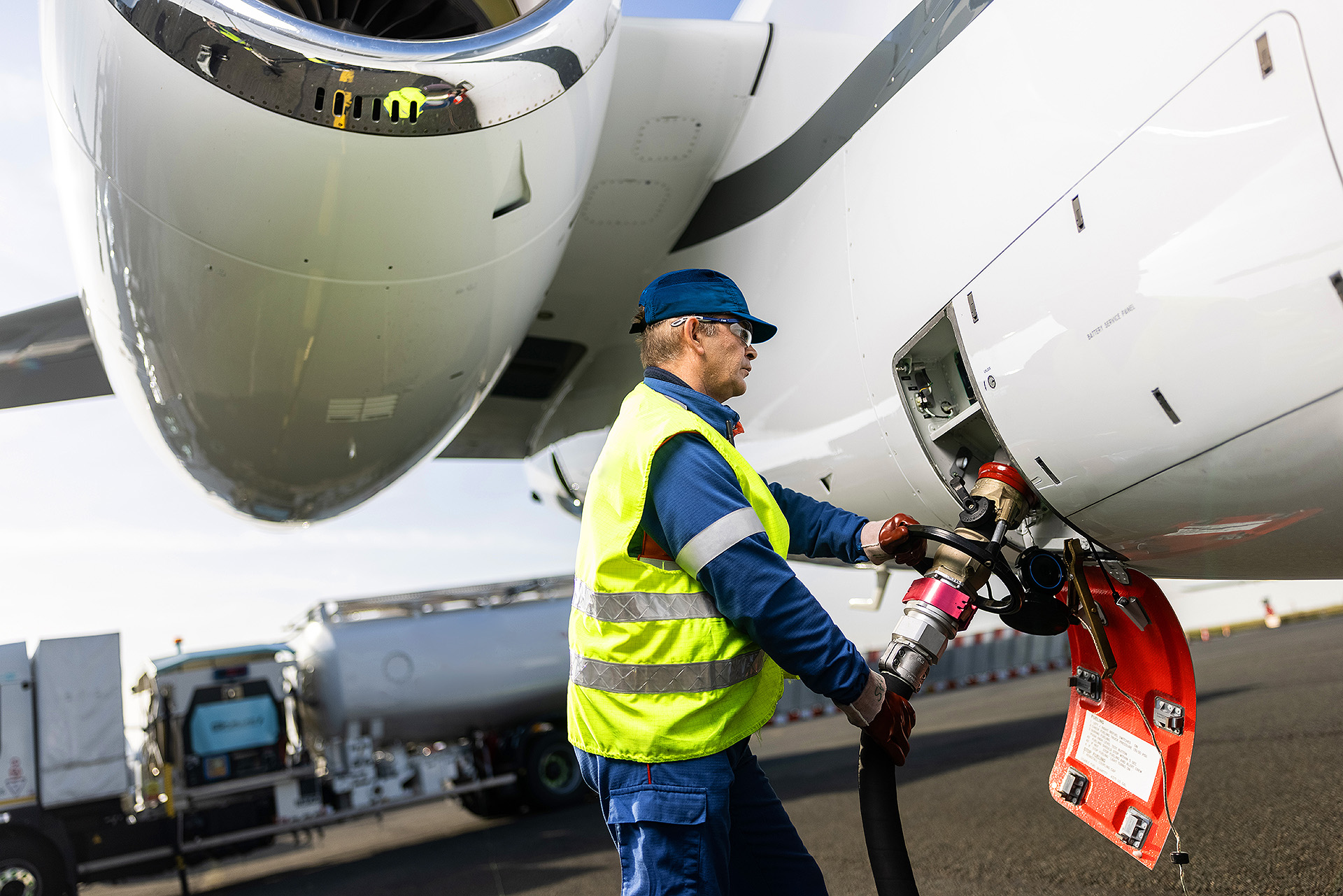
Leading with a focus on the future
We play a leading role in applied research programs such as SESAR and Clean Sky (now Clean Aviation) at the European level. We are members of the General Aviation Manufacturers Association (GAMA) Environmental Committee and the Business Aviation Coalition for Sustainable Aviation Fuel. Our work focuses on lowering fuel consumption by reducing drag and weight, improving fuel and flight efficiency and developing fuel-efficient flight path solutions.